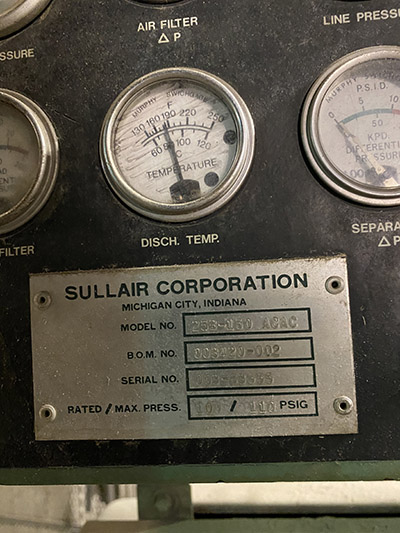
The lubricated screw air compressors are the most common type in the industrial environment, helping power critical operations in various sectors. Maintaining the quality of your compressor lubricant is very important if you want trouble-free operation. Let’s examine the significance of maintaining high lubricant quality for a lubricated screw air compressor — and its overall effect on efficiency and reliability. It should be noted that as a rule of thumb, for every 18° F above 200° F, the compressor lubricant life is reduced by 50%.
The lubricant in a lubricated screw air compressor ensures smooth operation and gives protection to vital components. Regularly monitoring and maintaining the lubricant quality is crucial to optimize the compressor’s performance. This can be done by sample testing. Over time, contaminants such as moisture, particulate matter, and oxidation byproducts can degrade the lubricant’s effectiveness. By adhering to a comprehensive maintenance schedule that includes oil analysis, filtration, and timely replacement, operators can ensure the lubricant maintains its ideal viscosity, stability, and lubricating properties — thereby maximizing the compressor’s performance.
The lifespan of any compressor is intrinsically linked to the quality of its lubricant. Contaminated or degraded lubricants can lead to accelerated wear and tear on critical components, such as bearings and gears, jeopardizing the compressor’s lifespan. Regularly maintaining the lubricant quality helps reduce excessive friction, heat buildup, and premature component failure. By preserving the integrity of the lubricant, operators can prolong the compressor’s lifespan, reduce downtime, and avoid costly repairs or replacements.
Maintaining high lubricant quality in a lubricated screw air compressor can translate into significant cost efficiency and energy savings. Contaminated or degraded lubricants can increase friction, impairing the compressor’s efficiency and requiring it to work harder to generate compressed air. By regularly monitoring and maintaining the lubricant quality, operators can reduce energy consumption, minimize wear and tear, and enhance the overall efficiency of the compressor. The result is reduced maintenance costs, lower energy bills, and optimized performance, leading to substantial savings over the compressor’s lifespan.
By implementing a diligent lubricant maintenance routine that includes analysis, filtration, and timely replacement, operators can maximize performance, extend equipment lifespan, and gain significant cost and energy savings. It is a small investment that yields substantial returns in terms of reliability, efficiency, and overall productivity.

Leave a Reply